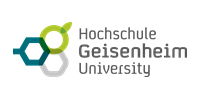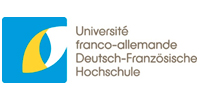Summer School
Bordeaux and its region have a multimodal transport offer and an international infrastructure.
Bordeaux-Mérignac airport
The Bordeaux-Mérignac (BOD) international airport is the main airport for the Nouvelle Aquitaine region. Situated west of Bordeaux (12 kilometers from the city centre), it is easily accessible by public transport.
Connected to the rest of the world via some of the largest European hubs (Paris CDG, Amsterdam, London, Madrid and Rome), the Bordeaux-Mérignac airport is served by a total of 31 airlines and has 3 terminals (A, B and Billi for low-cost flights). More than 5 million passengers pass through the airport each year, thanks to the 90+ national and international destinations available.
Transport from the airport
› Tramway line A connects the airport to the city centre ("Hôtel de ville"). It runs every 10 minutes from Monday to Friday and every 20 minutes during weekends. The journey takes around 40 minutes. Public transport tickets are available for purchase directly at the tramway station. The ticket price for a single journey is €1.80.
Bordeaux St-Jean station
The St-Jean train station links Bordeaux to all major French and international hubs. The centre of Paris (Montparnasse train station) is only 2 hours away from the city centre thanks to the high speed line (LGV), with 33 return trips per day.
All train journeys are managed by the SNCF (French National Railway Company).
Tickets may be purchased in all train stations in France, in SNCF shops or directly online.
Ouigo also offers low-cost train tickets from Bordeaux to and from 19 destinations. Tickets must be purchased online and are non-refundable.
Transport from the train station
›Tramway lines C (towards "Parc des Expositions" or "Gare de Blanquefort") and D (towards "Cantinolle" or "Hippodrome") allow you to access the city centre and run every 3 minutes. You will arrive at the "Quinconces" station in 12 minutes, a hub where all tramway lines cross. Public transport tickets are available for purchase directly at the tramway station. The ticket price for a single journey is €1.80.
How to get to ISVV?
Address : 210 chemin de Leysotte , 33882 Villenave d’Ornon CEDEX
The ISVV campus is located in Villenave d’Ornon, on the southern side of Bordeaux.
/!\ ISVV is not located on the main University of Bordeaux site.
By public transport:
- By bus: several bus routes can lead you to ISVV, depending on your location. You can check your bus itinerary here
- TIP : You can download the TBM App on your phone to calculate the best itinerary between ISVV and where you are. You can also buy bus/tram tickets directly on the app.
- By bike: you can rent a bike from the TBM bike system from any station in Bordeaux, and give the bike back at the station in front of ISVV.
- By car: there is a car park available for students at ISVV.
Accommodation information
We paste herebelow suggestions for nearby accommodation for your stay in Bordeaux. September is a busy season for tourists, and also for students looking for an apartment. As a result, we recommend to secure your accommodation well in advance.
- In Talence (closest to ISVV)
Ténéo Apparthotel Talence – Espeleta
4 Av. Espeleta, 33400 Talence
- In Bordeaux (further from ISVV)
Staycity Aparthotels Bordeaux City Centre
45 rue Leyteire, 33 000 Bordeaux
Phone : +33 05 33 52 08 54
e-mail : bordeauxcitycentre.info@staycity.com
Apparthotel Ténéo Bordeaux Saint Jean**
4 cours Barbey, 33800 BORDEAUX
Phone : +33 05 56 33 22 00
e-mail : bordeaux@teneo.fr
APPART CITY CLASSIC BORDEAUX CENTRE
36 RUE DU GENERAL LARMINAT, 33000 BORDEAUX
Phone : +33 05 56 10 10 50
e-mail : bordeaux-centre@appartcity.com
Adagio Access Rodesse
1 Rue Jean Renaud Dandicolle, 33000 Bordeaux
Phone : +33 05 56 56 18 00
e-mail : h8385@adagio-city.com
ADAGIO BORDEAUX GAMBETTA
40, rue Edmond Michelet, 33000 BORDEAUX
Phone : +33 05 57 30 47 47
e-mail : h6643@adagio-city.com
We also recommend to check AirBnB and Booking.com for alternative options.
Vine and wine sciences have long been a major focus of training and research at the University of Bordeaux and its local partners, Bordeaux Sciences Agro and the French National Institute of Agronomy and the Environment (INRAE).
This strong position is confirmed by the results of the 2022 Shanghai World Ranking of Academic Disciplines, which ranks agricultural sciences (76-100) among the top-performing academic disciplines at the University of Bordeaux. Building on this unique combination of academic and scientific collaborations, the BAG Alliance association, launched in 2010, demonstrates the expertise and ambition of the ISVV-Université de Bordeaux, the University of Geisenheim, the Australian Wine Research Institute, and the University of Adelaide in research and development of viticulture and oenology, seeking solutions and innovations to combat the consequences of climate change and for viticulture/oenology that is more resilient, sustainable, and respectful of the environment and biodiversity.
Furthermore, agriculture, vines and wine play a major role in the regional economy.
Considerable investments are made in the agricultural sector (10% of the regional budget compared to the national average of 4%). New Aquitaine is the top region in France for the production of fine wines with 100 00 hectares and has more than 70 appellations under the Quality and Origin Identification Sign (SIQO).
Page 1 of 2







